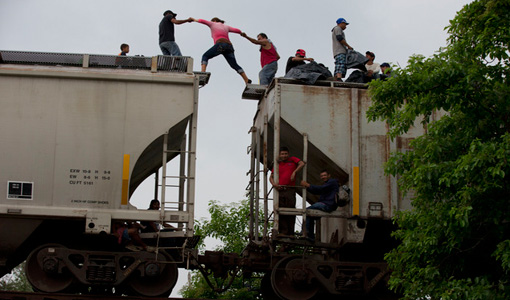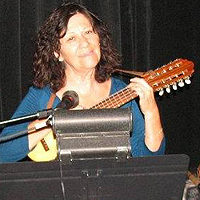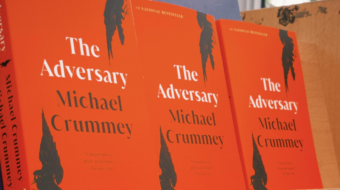
In October 2014, Dominga discovered she could fly.
Alone with her baby, she was waiting for her husband. Another terrified night. He would not like the humble food again. His voice would rise and the beatings come. Dominga’s head had scars where the hair would not grow. Her body was a canvas of furious brushstrokes, the colors of fire and despair.
When her first baby had left the womb, a great puddle of blood and guts on the floor, she started to hate him.
There were knocks on the door. She was all trembling legs, arms ready to defend her son from his father’s fury.
The door was kicked from the outside, and fell, frail and desolate. First came the guns, followed by teenage monsters dressed in discarded green uniforms. They destroyed and kicked and pointed guns at her, at the baby that screamed desperately on the only bed. They were asking for money. She took a few coins out of a box she was hiding from Him. They wanted more. They wanted pay. They took her with rage, with fear, the blows she did not feel as she swam into unconsciousness.
Another kick woke her up. It was Him. Drunk. He saw her body, infinitely small and lost in its own darkness, where he could not reach her. He lifted her with one hand and hit her with the other. Then he fell on the floor, in a loud sleep, cursing, kicking, crying, begging the ghosts of his misery to go away.
Dominga woke up from her despair, laid her baby on her back and covered him with the rebozo, tying it around her. He was safe in his cocoon, warm and forever safe. She took the coins left by the boy soldiers and ran, through the thick darkness of the wet jungle, around a mountain, a trail learned since childhood. A river cut her path, and when she entered the dangerous waters, she swam with her cocoon firmly holding onto her back, two lost beating hearts in the night.
Then she heard her dogs and the echo of the voice. Calling her, calling her tortured body, her loyal patience, because she knew no other destiny. The rain intensified as if to protect her. Her feet were not fast enough to save her. And then they were numb, her heart running away from her. She closed her eyes and asked her god, her mysterious god inside her chest waiting to be revealed at her death. She asked for her child. She even asked for the man. So that his anger would not kill him.
And then, she was lifted from the ground, not a miracle, but her right. She flew, first softly, like a bird about to find her way North, she flew faster and faster until she was out of the territory of the Voice, out of the harsh rain, on to a destiny she didn’t know.
Night turned into day. Dominga felt light, pure, at peace.
She saw changes in the landscape, from green to plantations of different colors. She passed over unimaginable large stretches of buildings and people running to some unknown goal; vehicles like the ones that roamed her town driven by men in black, in green, in hatred and greed.
She looked in horror at the blood of people begging and crying in lost places. In their last breath, they looked at the sky expecting to find God, and saw her. They died believing she was a wingless sunlit angel.
She passed by a great city, its ancient temples barely visible through a thick layer of black smoke, and pointing to the sky a tall tower where angels lived. She heard chanting and smelled anger.
And then, coming out of a forest, she saw the most terrifying, incredibly beautiful beast. She followed her crawling over mountains, valleys, through towns and cities. The beast was adorned by glowing eyes, thousands of eyes that looked up to the firmament. They discovered the angel powered by a cocoon and their eyes were scared and their eyes were full of misery. They believed, and they beckoned her to save them. She landed roughly on the back of the beast. People looked at her in wonderment, and made for her a soft place to sit and feed her baby.
At some places the beast would slow her pace to let women and men, children and barking dogs coming out of a village, carrying baskets of food, to get close. The food would fly to their hands and the blessings would fall on theirs.
They finally arrived at a high gate. She and other women crossed and were greeted by tall, great men she had only seen in the novelas she watched on her old TV.
Some kind, some angered by their arrival. Into a cold room, and an uncertain future.
But nothing that happened from now on would destroy Dominga. She had experienced the height of freedom. Her baby would leave his safe home and find her, a mother who would never again fear the night. She had flown with no wings, powered by a blessed cocoon.
Photo: A woman, one of several fleeing Central American refugees in this photo, is helped from one train car to another, atop a train that is going north. | Rebecca Blackwell/AP










